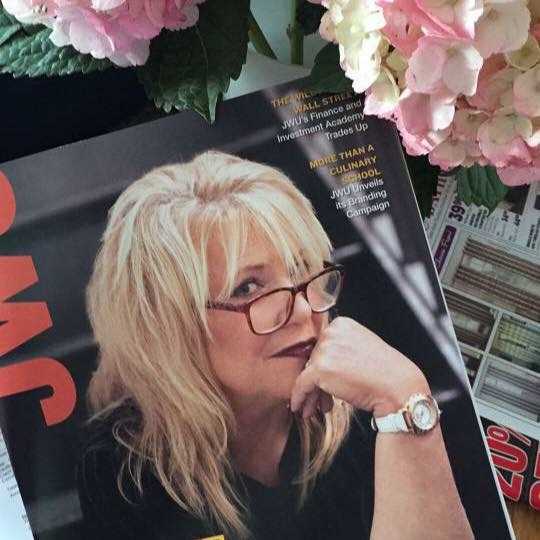Search Posts
Recent Posts
- Senior Agenda Coalition of RI pushes wealth tax to fund programs for older residents – Herb Weiss June 2, 2025
- How will Artificial Intelligence (AI) impact the future of work – Mary T. O’Sullivan June 2, 2025
- Real Estate in RI: Tiverton contemporary for $1.27M June 2, 2025
- Our Networking Pick of the Week: Coffee Hour at Provence Sur Mer, Newport June 2, 2025
- Rhode Island Weather for June 2, 2025 – Jack Donnelly June 2, 2025
Categories
Subscribe!
Thanks for subscribing! Please check your email for further instructions.

GriefSpeak – Bereavement Support Groups and where to find them
By Mari Dias
“There is no grief like the grief that does not speak” (Henry Wadsworth Longfellow)
Talking about one’s pain associated with grieving the death of a loved one is the most effective way to move through grief; however, many friends and family may suggest that they have heard it before, or proffer advice about “moving on.”
Bereavement Support Groups are an effective means to share your story as often as you would like, without judgement or advice. Grief groups normalize your narrative and your pain as you are meeting with like- minded people suffering for similar reasons. As with any group dynamic, comradery and trust grow and the group becomes a safe place to discuss difficult emotions.
Many bereavement support groups are run by local hospice centers. All are welcome to participate in these groups- they are free and open to the public. There are no eligibility requirements except for your grief. These groups are either once a week for 6 weeks or drop in groups once a month. The groups range from a general grief support group, to more specific populations, e.g. “Widows Groups”, “Loss of a Child”, “Loss of Parent” and “Loss of Sibling,” “LGBTQI” groups, “Loss of Spouse” and more.
Drop in groups are often preferred, as there is no sign up and you may literally “drop in” to any group every day of the week. These groups are led by hospice trained facilitators. There are also advanced groups on Mindfulness and Meditation for Grief and Healing and “Caregivers Support Groups”. Contact Hope Hospice Volunteer Office or go to their website https://www.hopehealthco.org/ and click on services and then bereavement support groups.
In addition, local places of worship often offer a “leaderless” support group, where a group of individuals decide to meet and support each other.
Hospital Social Workers are also a valuable resource. They are aware of both active and future groups offered throughout your community. This is of particular importance when there is a traumatic loss, including homicide, suicide or an unintended overdose. Other specialized groups may include the loss of a fetus to miscarriage or abortion and loss of a newborn to a stillbirth.
Many independent therapists offer groups as well, which may require a small fee. The Psychology Today Therapist Directory (online) allows one to enter their zip code and access a list of therapists. The individual listings provide the population they work with and whether they offer groups. Many grievers may prefer one –on-one counseling before and/or during group participation. This directory provides both; however, it is suggested that you chose a clinician or a group facilitator with either CT or FT after their names. These acronyms indicate that they are either certified in Thanatology or hold a Fellow in Thanatology from ADEC (Association for Death Education and Counseling), the premier national organization for death and dying.
In addition, some communities have non- profit agencies that offer bereavement support. For example, Warwick has “Friends Way”, an agency that works with grieving children ages 3-18 in appropriate developmental groups. Agencies such as this also offer Grief Camps for children during the summer months. There also exists National Grief Recovery Support groups through “GriefShare”. If you like the idea of group but want to remain anonymous, there are several chat rooms- very helpful for a 3am call for comfort.
The process of joining a bereavement support group is a powerful way to share your grief in an empathetic, genuine atmosphere that provides mutual support, understanding and compassion as you move forward on your grief journey.
Dr. Mari Dias is a nationally board-certified counselor, holds a Fellow in Thanatology from the Association of Death Education and Counseling (ADEC), and is certified in both grief counseling (American Institute of Health Care Professionals) and complicated grief (Columbia University School of Social Work). Dias is also a weekly contributing writer for RINewsToday.com. You may find her articles in the Health section entitled: “GriefSpeak.”
She is Professor of Clinical Mental Health, Master of Science program, Johnson & Wales University. Dias is the director and clinician at GracePointe Grief Center, in North Kingstown, RI, working with end of life, and finite and non -finite loss. She is also a volunteer for Hope Health Hospice and the American Red Cross. For more information, go to: http://gracepointegrief.com/
